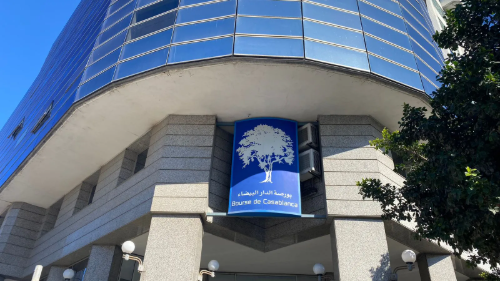Morocco Launches Derivatives Market as It Eyes Emerging-Market Status

TLDR
- Morocco has launched derivatives trading on its Casablanca Stock Exchange (CSE), introducing a futures contract based on the MASI 20 index
- Morocco has launched derivatives trading on its Casablanca Stock Exchange (CSE), introducing a futures contract based on the MASI 20 index
- Moroccan equities are up 36% year-to-date, outperforming the 7% average return in frontier markets
Morocco has launched derivatives trading on its Casablanca Stock Exchange (CSE), introducing a futures contract based on the MASI 20 index, which tracks the 20 most liquid stocks in the market. The move is part of a broader strategy to deepen capital markets, attract more investors, and regain MSCI emerging-market classification after 12 years.
The MASI 20 futures contract, approved by the Moroccan Capital Market Authority (AMMC), trades on a quarterly cycle and settles in cash. Each index point is worth 10 Moroccan dirhams, with a 1,000 MAD initial margin requirement. Trading is continuous and aligned with international standards to accommodate both institutional and professional investors.
CSE CEO Tarik Senhaji said derivatives will boost liquidity and improve funding access for Moroccan companies. The bourse also plans to introduce additional instruments, including interest rate futures, single-stock futures, equity options, and listed REITs. Moroccan equities are up 36% year-to-date, outperforming the 7% average return in frontier markets.
Daba is Africa's leading investment platform for private and public markets. Download here
Key Takeaways
The derivatives launch comes amid a broader transformation of Morocco’s financial ecosystem. Daily trading volumes rose nearly 70% to $37.5 million in 2024, and market capitalization jumped from $64.6 billion in December 2023 to $95.5 billion in March 2025. The CSE’s modernization is strategically timed. Morocco will co-host the 2030 FIFA World Cup, a catalyst expected to drive major infrastructure spending. Senhaji believes the new derivatives market will help local companies raise capital more efficiently while offering investors new tools to manage risk and gain exposure. The government is also preparing to introduce interest rate derivatives, which would link the bond and equity markets, facilitating cross-asset trading. February's approval for state-affiliated financial institutions to join the country’s central clearing system laid the groundwork for broader participation. While retail investors currently account for less than 1% of the market, and the exchange saw only one IPO in 2024, reforms are aimed at improving local engagement. With foreign investors holding about 30% of the market, Morocco is positioning itself as a regional hub for capital in both public and private sectors.

Next Frontier
Stay up to date on major news and events in African markets. Delivered weekly.
Pulse54
UDeep-dives into what’s old and new in Africa’s investment landscape. Delivered twice monthly.
Events
Sign up to stay informed about our regular webinars, product launches, and exhibitions.




